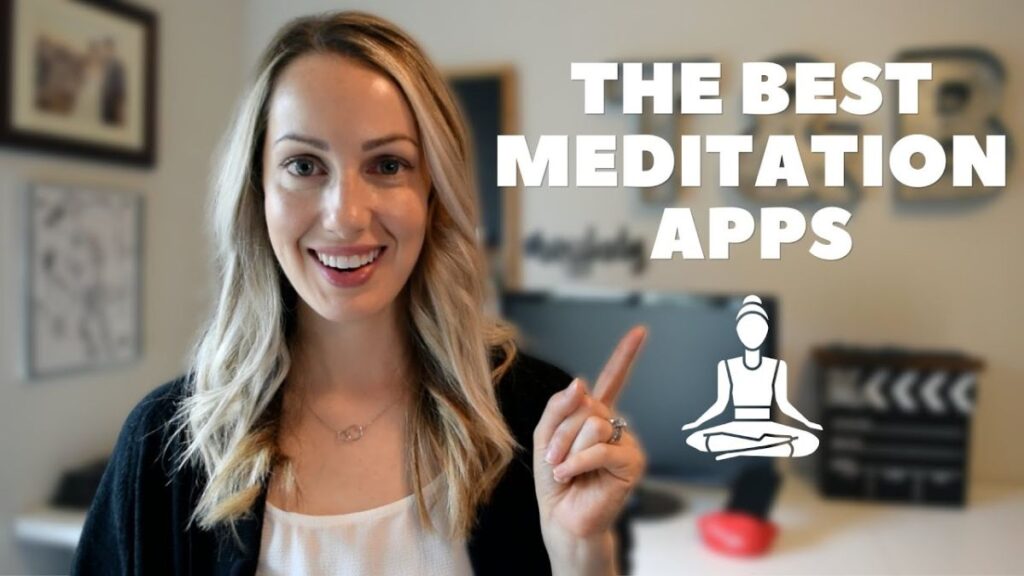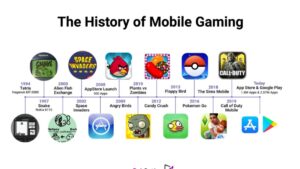In today’s fast-paced world, stress and anxiety have become a near-universal experience. Whether due to demanding work environments, personal challenges, or the constant influx of digital stimuli, our minds are often overloaded. Fortunately, one of the most effective ways to combat these mental pressures is through meditation. And thanks to modern technology, access to calming practices is literally at our fingertips. With a variety of apps available on smartphones and tablets, guided meditation is more accessible than ever. These apps offer structured programs, soothing voices, mindfulness techniques, and even sleep aids to help people manage stress and anxiety. This article delves into the best meditation apps designed specifically to reduce stress and anxiety, examining their features, benefits, and how they stand out in the crowded mental wellness space.
Why Use Meditation Apps?
Before exploring the best options, it’s important to understand why meditation apps have gained such popularity. Traditional meditation can be daunting for beginners. Sitting in silence without direction can quickly become frustrating, especially for those unfamiliar with mindfulness techniques. Meditation apps bridge this gap by providing guided sessions that make the practice approachable. They also fit easily into modern lifestyles—whether you’re at home, commuting, or taking a short break at work, these apps allow for on-the-go mindfulness. Additionally, many apps offer features like progress tracking, personalized recommendations, and customizable soundscapes, which enhance the user experience and encourage regular practice. Their convenience, combined with science-backed techniques, has made meditation apps a valuable tool for mental well-being.
1. Headspace: A User-Friendly Introduction to Mindfulness
Headspace is often considered the gold standard among meditation apps, and for good reason. Its user interface is colorful, friendly, and designed to ease beginners into mindfulness practices. The app was co-founded by Andy Puddicombe, a former Buddhist monk, whose soothing voice narrates many of the guided meditations. Headspace provides targeted sessions for stress, anxiety, sleep, focus, and even anger management. One of its most useful features is the “Basics” course, which introduces users to meditation fundamentals over a series of short, manageable sessions.
For those battling chronic stress and anxiety, Headspace offers specialized packs with a mix of breathing exercises, body scans, and mindful observation. The app also includes “Sleepcasts”—audio stories designed to help users fall asleep faster—and daily meditations tailored to the time of day or current emotional state. With its visually engaging design and a wide range of content, Headspace makes it easy for users to incorporate mindfulness into their daily routine, making it a top choice among meditation apps.
2. Calm: A Sanctuary of Serenity
Calm is another heavyweight in the meditation app space, with a strong emphasis on relaxation and sleep. Visually, Calm offers a tranquil experience right from the start. The home screen features peaceful natural scenes, often accompanied by the gentle sounds of rain or ocean waves. What sets Calm apart is its wide range of offerings. It includes guided meditations, breathing exercises, bedtime stories read by celebrities like Matthew McConaughey, and even masterclasses by mental health experts.
The app is particularly effective for users dealing with anxiety-related insomnia. Calm’s sleep stories and ambient soundscapes help the mind unwind, making it easier to drift into restful sleep. For daytime use, Calm provides short “Daily Calm” sessions, focused on stress reduction and positive thinking. There’s also a mood-tracking journal integrated into the app, encouraging self-reflection and helping users identify emotional patterns. With its multifaceted approach and calming interface, Calm is more than just a meditation app—it’s a complete toolkit for managing stress and anxiety.
3. Insight Timer: A Rich Library of Free Content
Unlike many other meditation apps that require a subscription to access most features, Insight Timer offers an extensive amount of content for free. This makes it particularly appealing for users who may not want to invest money upfront. With over 100,000 guided meditations from thousands of teachers around the world, Insight Timer caters to a broad spectrum of needs—from stress relief to spiritual growth.
The app is ideal for both beginners and seasoned meditators. It offers structured courses on anxiety management, sleep improvement, and overcoming fear, along with unguided timer-based meditations for more experienced users. A standout feature is the community aspect—users can see how many others are meditating at the same time, fostering a sense of global connection and shared purpose. In addition, Insight Timer includes music tracks, live events, and even yoga practices, making it one of the most comprehensive wellness apps available today.
4. Ten Percent Happier: Practical Mindfulness for Skeptics
Not everyone is immediately comfortable with the idea of meditation. For those who are skeptical or prefer a more grounded approach, Ten Percent Happier is a perfect fit. Founded by journalist Dan Harris, who experienced a panic attack on live television, the app aims to make meditation accessible and practical. It features a no-nonsense style that appeals to analytical minds and those looking for evidence-based tools.
Ten Percent Happier offers a variety of courses led by well-known teachers such as Joseph Goldstein and Sharon Salzberg. The focus is on practical applications of mindfulness in everyday situations, like managing workplace stress or handling difficult conversations. The app also includes short “on-the-go” sessions for users with limited time and a section devoted to mindful movement. Its balance of clarity, compassion, and scientific insight makes it one of the most relatable and effective meditation apps for stress and anxiety.
5. Breethe: A Holistic Lifestyle Approach
Breethe stands out for its lifestyle-focused approach to mental wellness. While it includes the typical features found in meditation apps—guided sessions, sleep aids, and breathing techniques—it also delves into coaching, affirmations, and even hypnotherapy. The app’s content is organized around real-life challenges such as “Navigating Divorce,” “Workplace Stress,” and “Parenting Stress,” providing targeted support that many users find incredibly helpful.
The tone of Breethe is warm and conversational, which can be especially comforting for individuals going through emotionally taxing periods. Its guided meditations often include visualization and affirmation practices, tools that are particularly effective in reducing anxiety and building emotional resilience. With new content added frequently and a focus on everyday problems, Breethe bridges the gap between meditation and personal development, making it an excellent resource for long-term stress management.
6. Smiling Mind: Mindfulness for All Ages
Smiling Mind is a unique meditation app developed by psychologists and educators with a strong focus on young people. Although it’s suitable for adults, its programs are specifically designed for children and adolescents, making it a great option for families or schools looking to introduce mindfulness early on. The app offers programs for different age groups and includes sessions for classrooms, sports teams, and workplaces.
One of Smiling Mind’s most commendable features is its completely free model, driven by a nonprofit organization. This accessibility ensures that more people can benefit from mindfulness practices, regardless of their financial situation. For adults dealing with anxiety, Smiling Mind includes structured programs that explore topics like stress, sleep, and emotional balance. Its scientific foundation and social mission make it a standout among meditation apps, particularly for educational and family environments.
Choosing the Right App for You
With so many meditation apps on the market, finding the right one depends on individual needs and preferences. Are you a beginner looking for structure? Headspace or Calm may be ideal. Want a comprehensive free resource? Insight Timer is the way to go. Prefer a no-frills, science-backed approach? Try Ten Percent Happier. Looking for a more holistic or therapeutic experience? Breethe has a lot to offer. Or if you’re a parent or educator, Smiling Mind provides invaluable resources for young minds.
It’s also important to consider practical factors like app layout, voice quality of the guides, session length, and subscription costs. Many apps offer free trials or basic versions with limited content, so it’s worth exploring a few options before committing to a subscription.
Final Thoughts
Meditation is not a cure-all, but it is a powerful tool in the fight against stress and anxiety. The best meditation apps make this practice more accessible, less intimidating, and highly effective for users of all backgrounds. Whether you’re struggling with sleepless nights, overwhelmed by work pressure, or simply seeking a calmer mind, these apps can provide the guidance and support you need.
As technology continues to evolve, so too does the potential for digital wellness. These apps exemplify how smartphones can be transformed from stress inducers into gateways for mental clarity. The key is consistency—just a few minutes a day can lead to noticeable improvements in mood, focus, and overall well-being. So download an app, take a deep breath, and begin your journey toward a more mindful, peaceful life.



